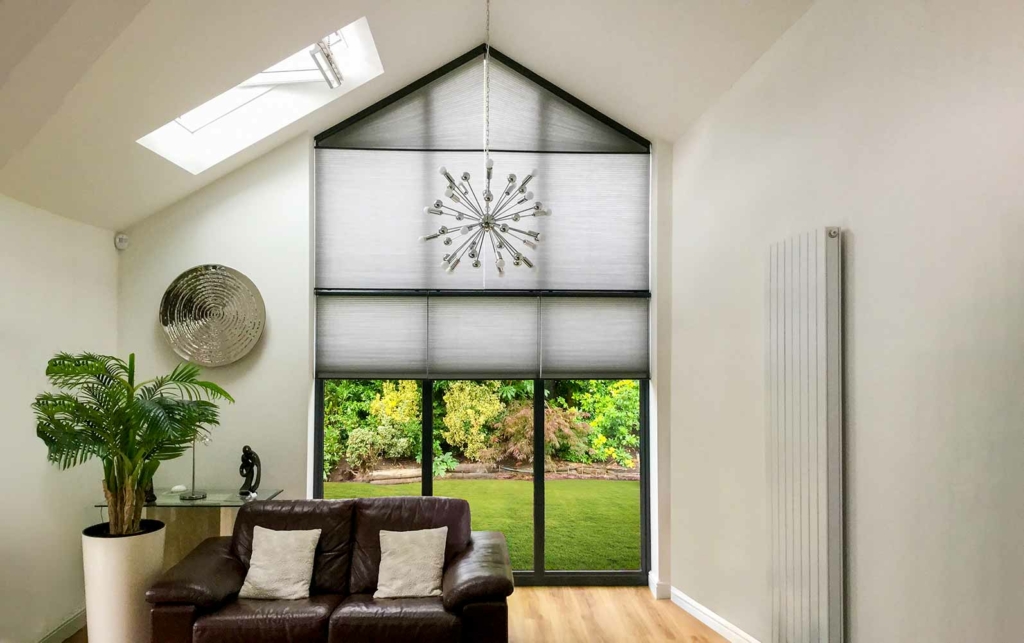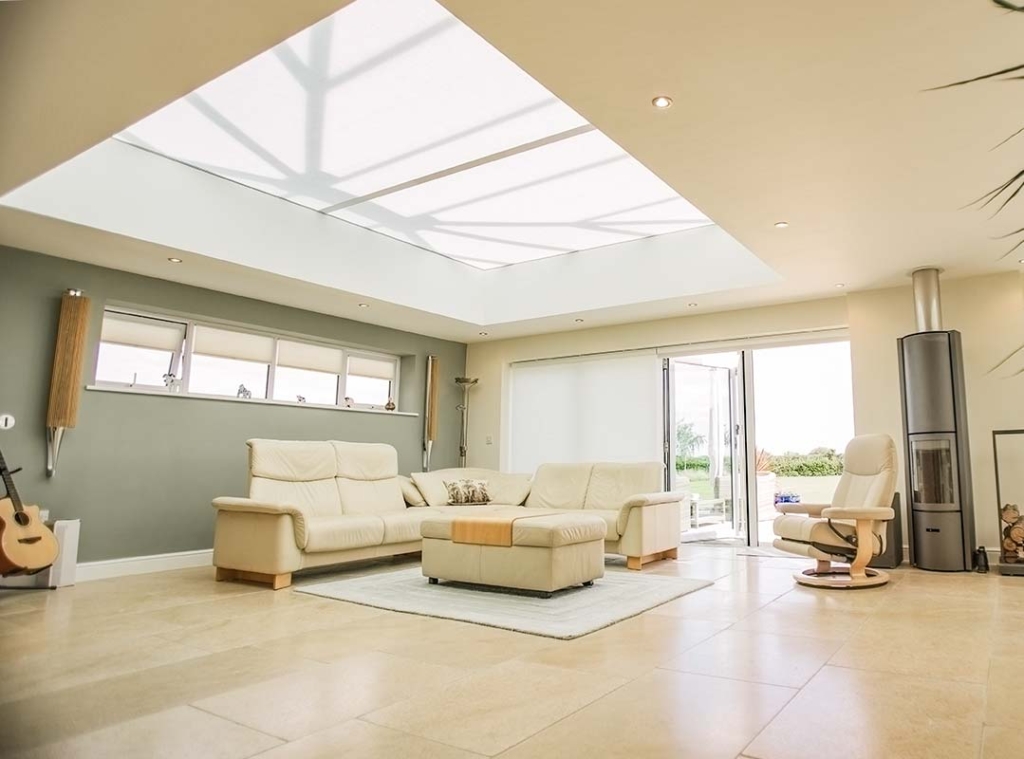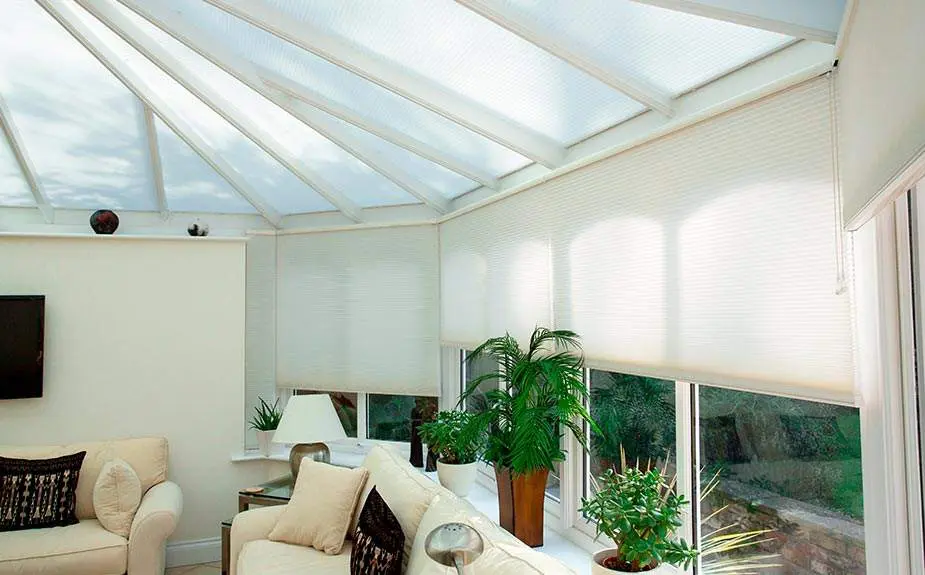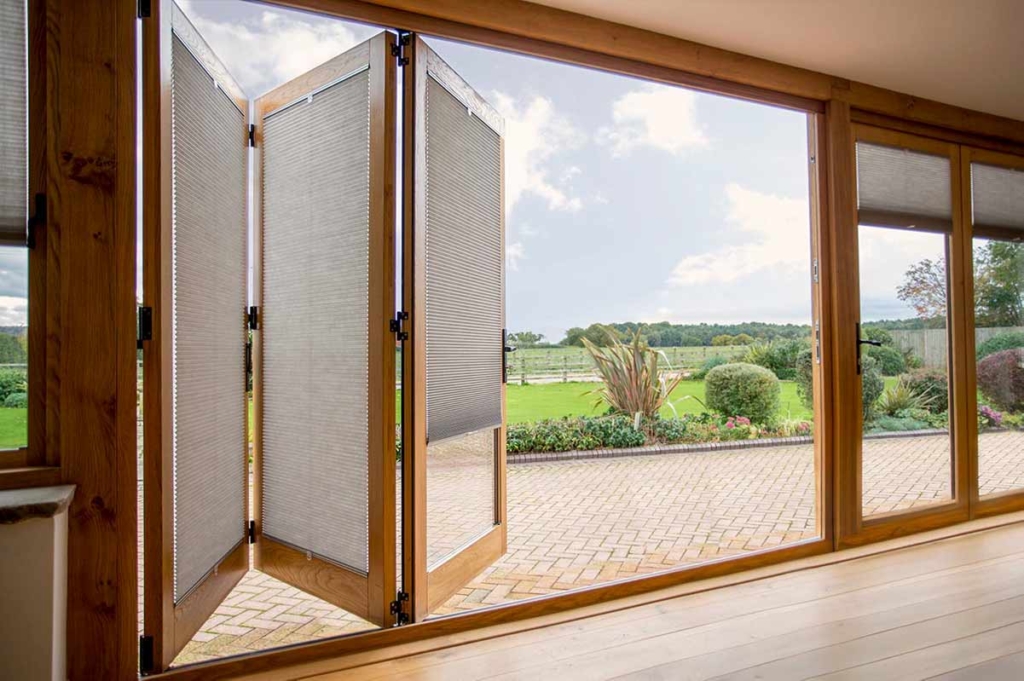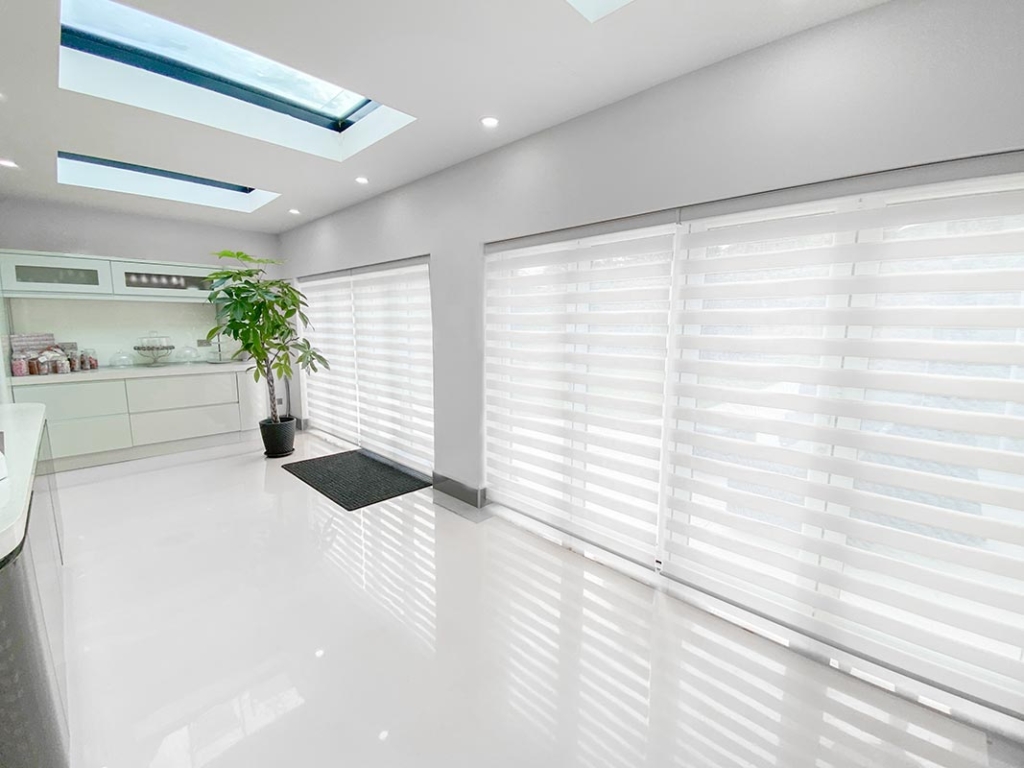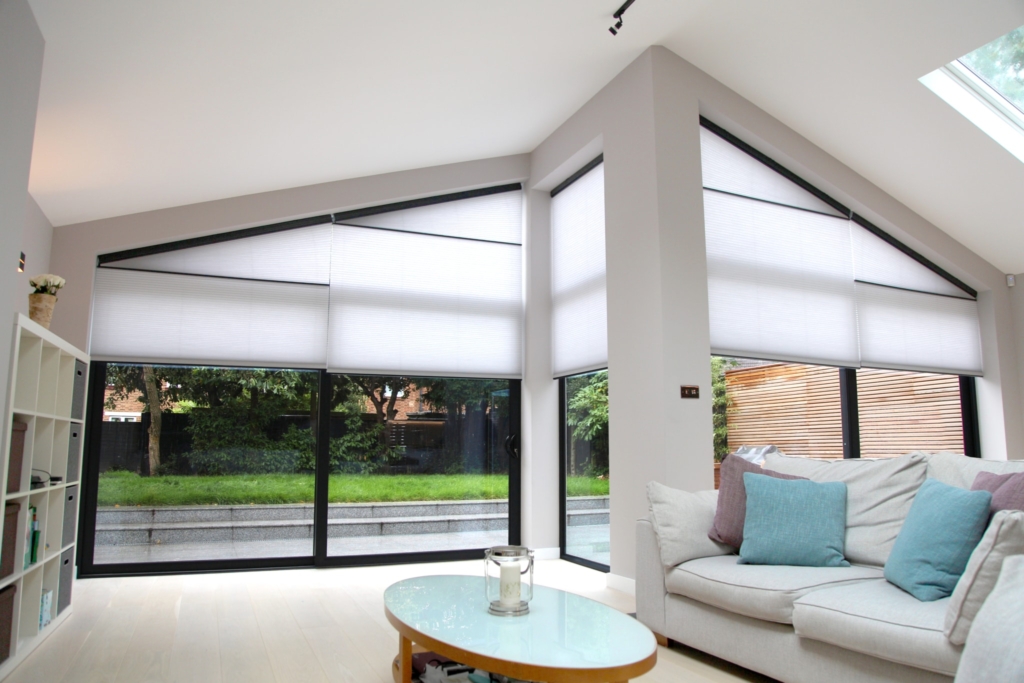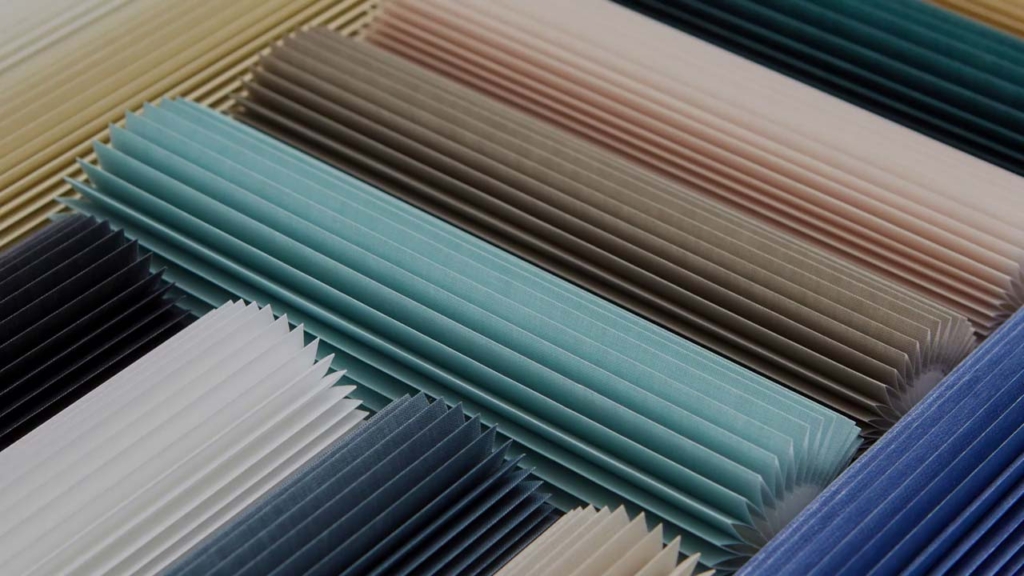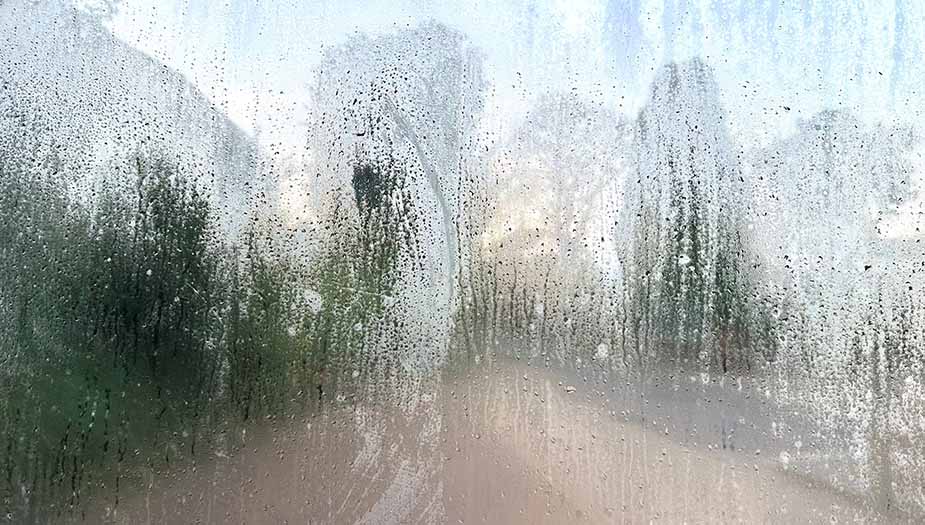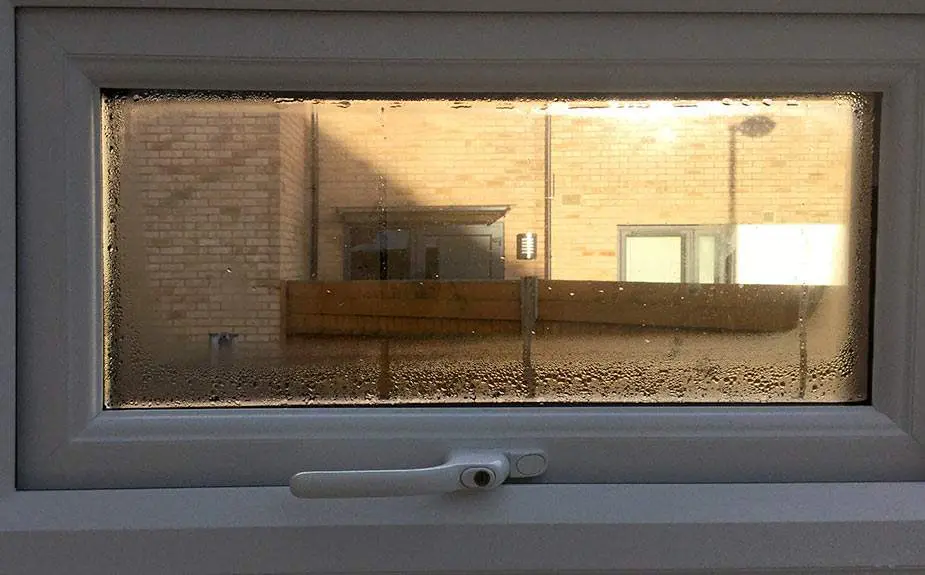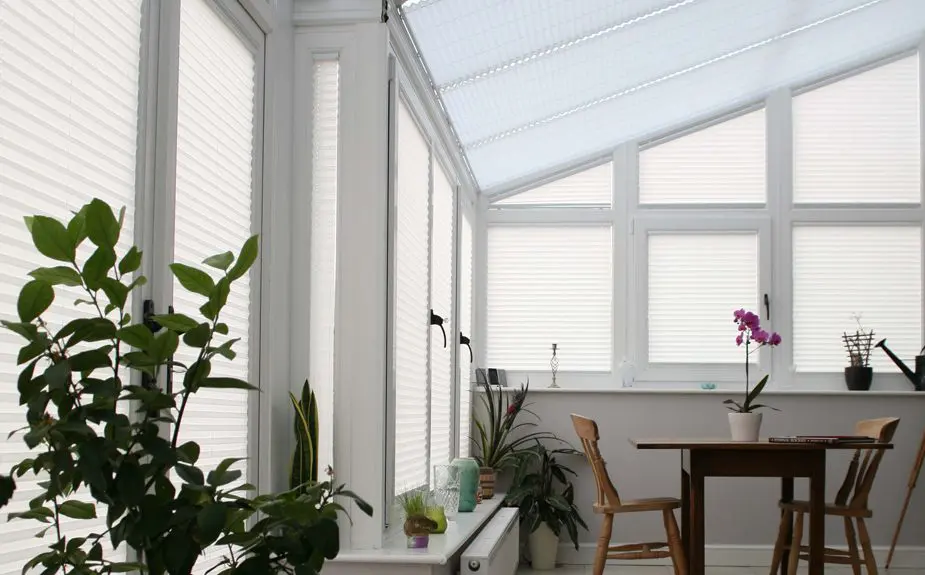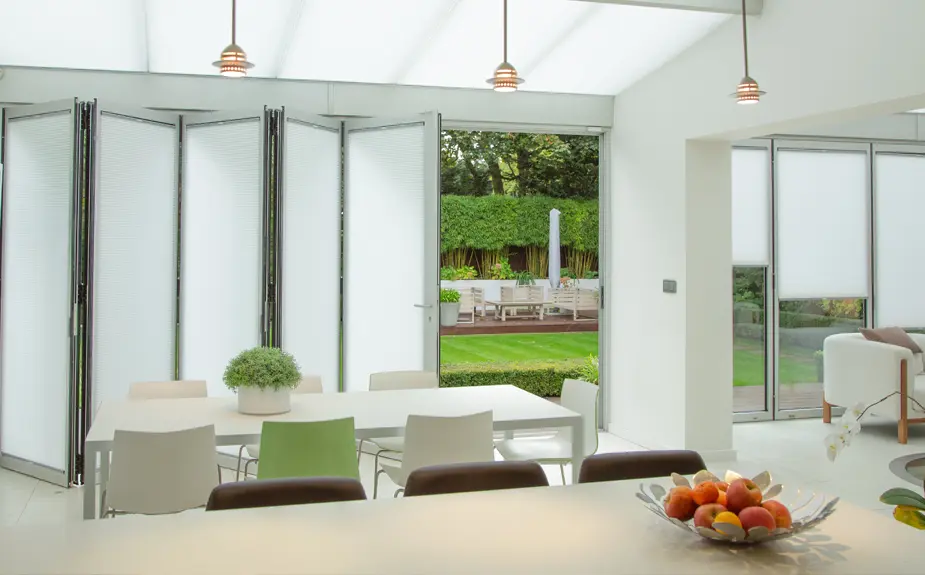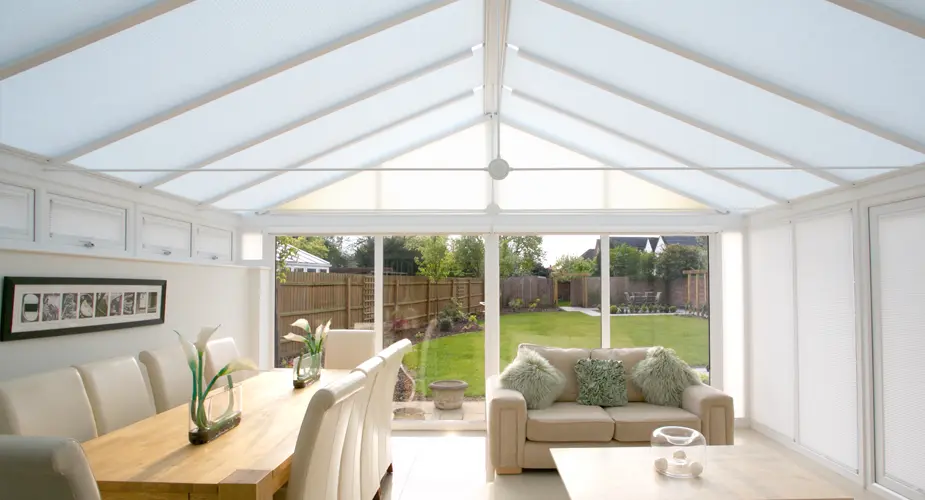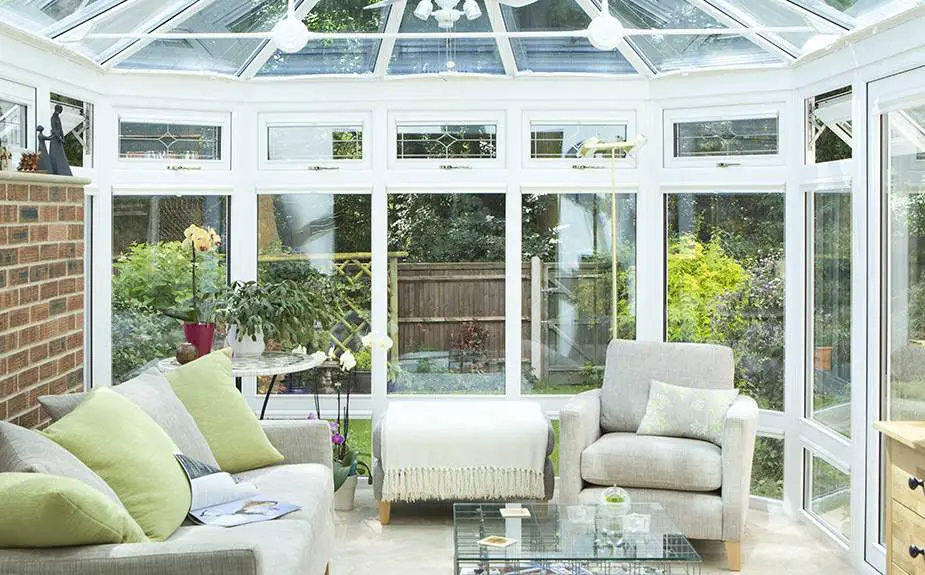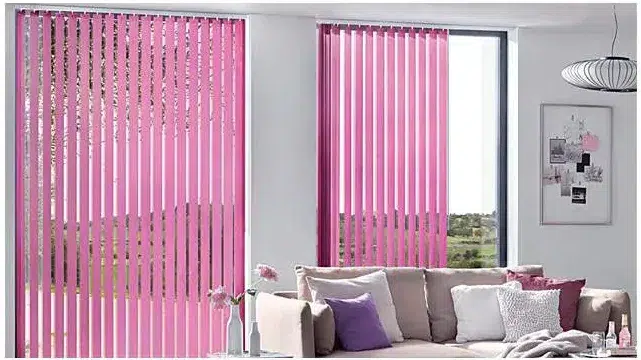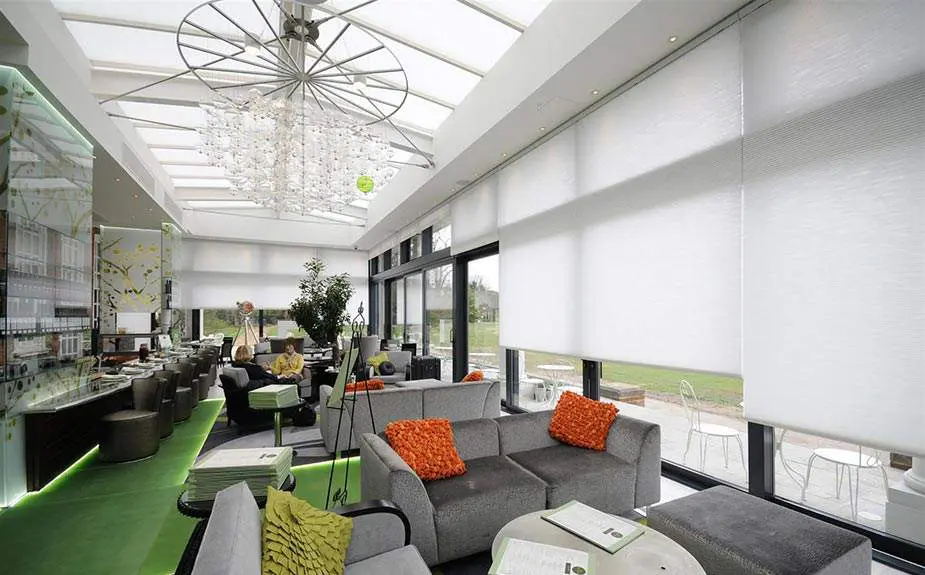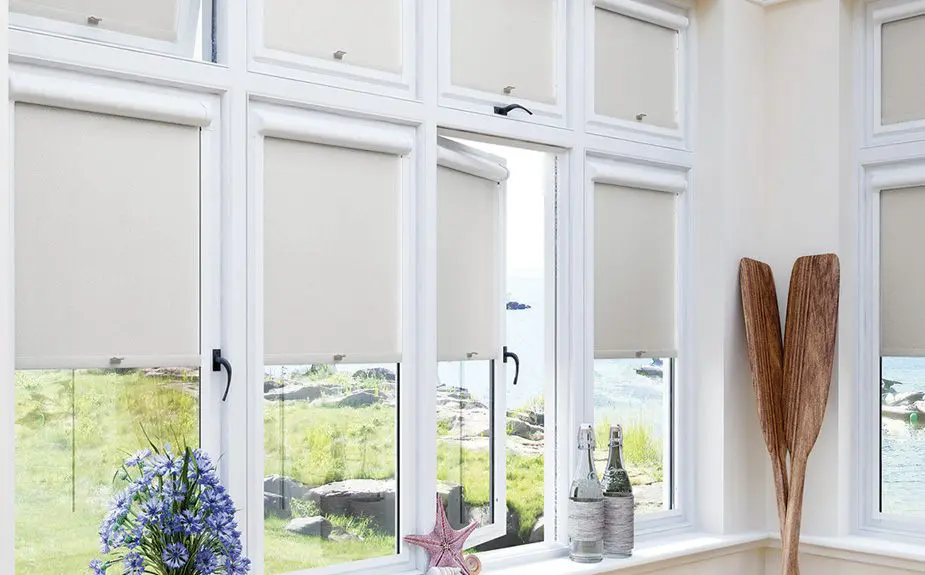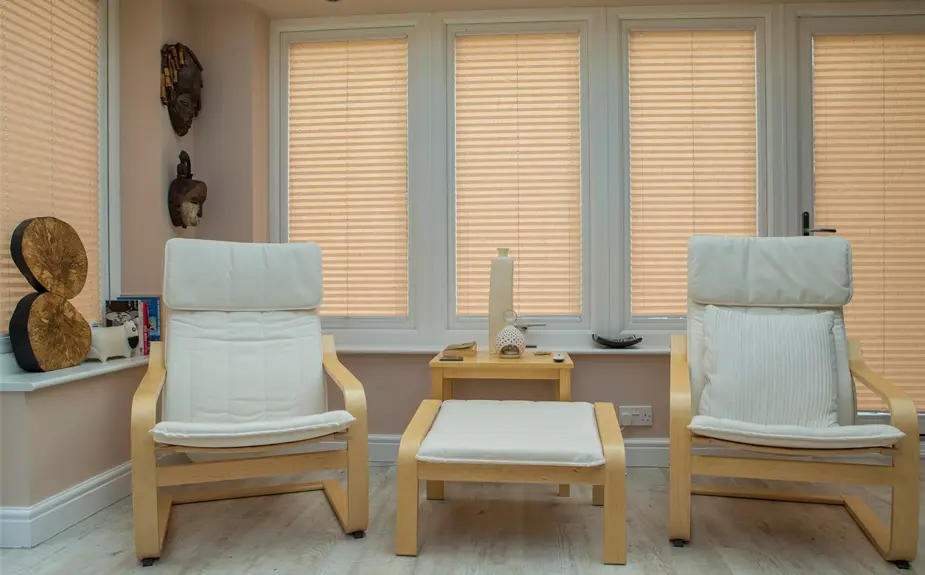Posted: 1 Dec 2023
As it’s the season where the nights and mornings are getting colder, we nestle into our homes to feel warm and safe. This is the time of year that we heat our homes to allow for that added warmth and comfort. However, as a result of staying warm indoors whilst it’s cold outside, we inevitably get unwanted condensation on our glazing. In recent years, many people are investing in additional glazing for their home such as bifold and sliding doors, gable windows, and lantern roofs. However, a common problem within the home is condensation on glazing. Here, we look at what causes condensation on windows and doors and ways to prevent it.
What Does Cause Condensation on Windows and Doors?
Condensation occurs when water vapour comes into contact with cold surfaces. It condenses to then form dampness or water droplets. If there is condensation forming on the inside of your bifold doors, it means that the relative humidity of the air is too high. This is what causes unwanted mould to form. Heating a room is an excellent way to get rid of some of the water in the air. Although, we always advise ventilating the entire room regularly to allow air to flow through. This will ensure any remaining moisture in the air can leave the room.
If you’re heating your home properly and condensation is still forming, it may be worthwhile checking the frame of the structure for potential leaks. This is where moisture could be coming in. However, if there is leftover humidity within the room you can always purchase a dehumidifier to reduce it.
The subsequent development of condensation turning into mould is due to the presence of dust, made up of biological matter and moisture. It is important to ensure that this combination does not occur so it’s best to avoid condensation on your windows and doors before it turns into mould.
Another important thing to remember is to open the trickle vents on your glazing. This may seem a little odd as it may feel like it opens the room to cold air. In fact, this allows important air flow and helps to prevent a build up of moisture. Thus, preventing the build up of condensation within the room.
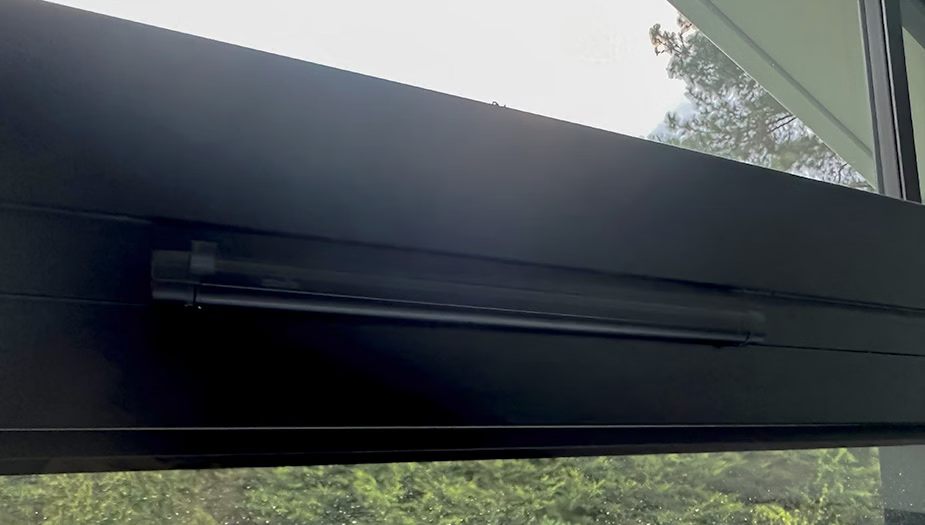
Condensation in a new extension
If you have a recent extension and happen to have condensation, this is not unexpected. This is due to bricks, blocks, timber, plaster and other materials having absorbed water during the process of construction. It is embedded in the fabric of the building itself. Therefore, a degree of moisture will be present when you first complete your extension.
We strongly advise following the same steps as above to avoid condensation. Also, if you are considering looking at window coverings to support insulation and complete the décor in your extension, it may be advisable to let the fabric of the building dry out first before investing in these.
Adding Insulation to Windows and Doors Throughout the Home
When looking at what causes condensation on windows and doors, another cause could be lack of insulation. Blinds are an effective way to insulate your glazing making it easier to keep your space warm. A selection of our fabrics offer great thermal, insulating and heat regulating benefits. This makes them a great choice for insulating your glazing in a bid to keep condensation on windows and doors at bay. Again, we always advise opening blinds and ventilating the room periodically to allow moisture to escape.
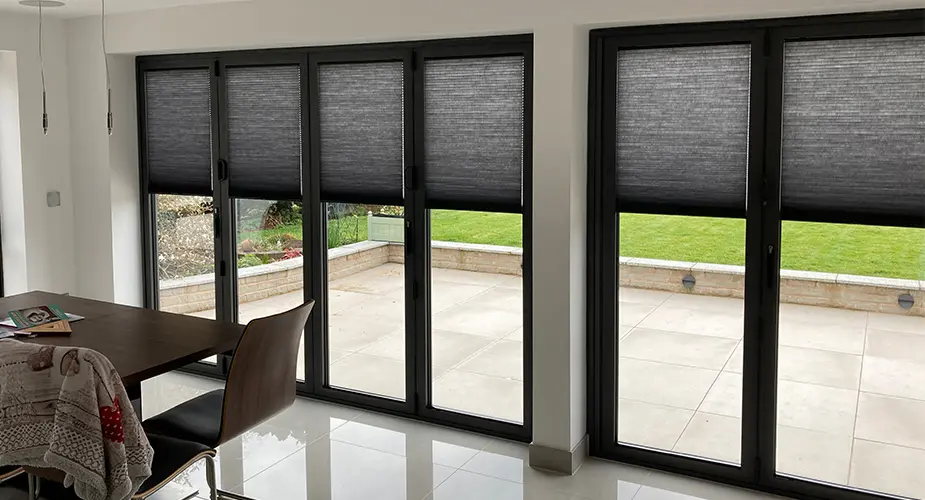
You can read more about the benefits of investing in blinds for winter, including heat loss, reduced energy costs and privacy.
Free Consultation
So with the nights continuing to get colder until spring, it’s advisable to take these precautions now. That way, you can avoid condensation and stop it turning into mould before it happens.
Our dedicated team of consultants are always on hand to offer advice should you wish to arrange a free consultation. They can offer expert advice on how our blinds can suit your home.

